Join JPI UE
Faq
FAQ
Please click here for the frequently asked questions we collected.
If you have an additional questions you are welcome to mail us at info@jpi-urbaneurope.eu
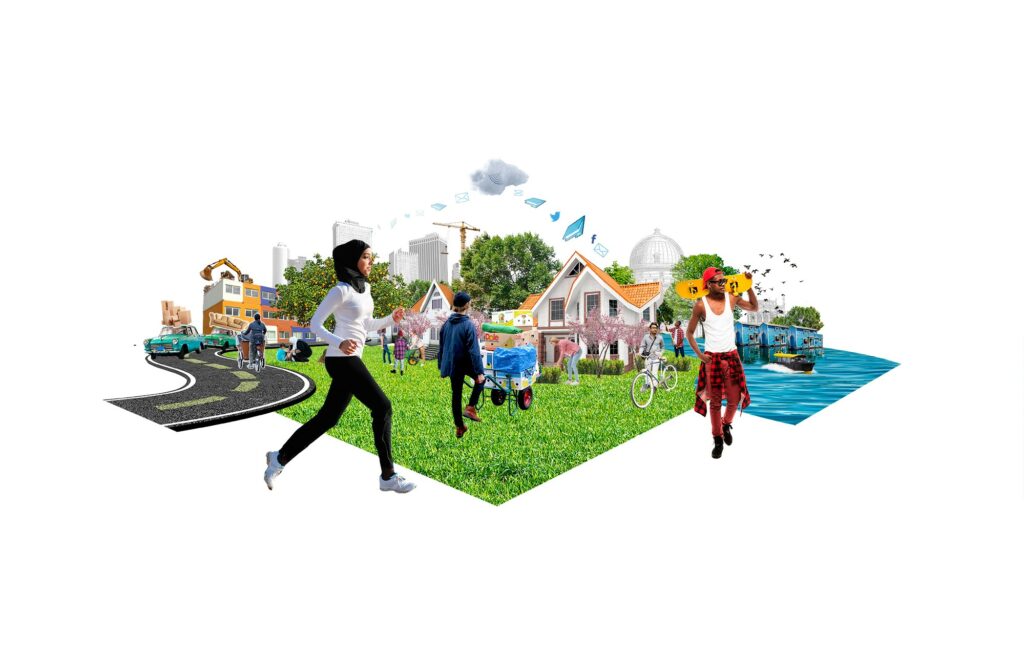
The Urban Migration projects will build a transdisciplinary and cross-sectoral community of researchers, practitioners and migrant communities working in the field of urban migration. In the kick-off meeting, the project teams presented their plans and aims to each other, and joined break out sessions to discuss either Urban governance of housing issues or Socio-spatial integration and involvement of citizens and city administrations.
Participants discussed how increased migration flow to urban areas can result in new opportunities, as well as in challenges. One set of challenges in need of research and innovation concerns inequalities. Another challenge is the socio-spatial and cultural segregation due to socio-demographic changes in communities and other local groupings. There is a need for new knowledge on measures and strategies that can promote social integration and increase citizen involvement and participation among populations. The projects exchanged on how they will approach these urban migration challenges and how they can collaborate.
Some of the challenges concerned the lack of trust between migrants and local populations, but also power distribution, and institutional exclusion of certain groups of migrants, suggesting that co-creation, involvement of affected people and an understanding of the needs of target groups might help develop tailored strategies to tackle the issues.
To be able to manage migration flows, and assist the long-term integration of migrants, cities need to adopt solid housing practices and measures. Cities’ leeway in providing and assisting migrants has so far been dependent on the degree of state control vs. local and regional autonomy. Factors of historical and cultural nature are important at the urban level. Providing adequate and affordable housing to migrants is one of the biggest challenges, in terms of stresses on some cities’ settlement- and housing capacities.
To address these issues, the projects discussed which innovative housing strategies may contribute to the housing needs of migrant communities, a few being; assistance in finding good housing, having non-profit actors on the housing market and to address the specific needs of women.
The expectations for the Urban Migration call were high, some noting that collaboration with other projects is on top of their list, whilst some highlighted the possibilities of learning from each other and sharing results within the JPI Urban Europe context.
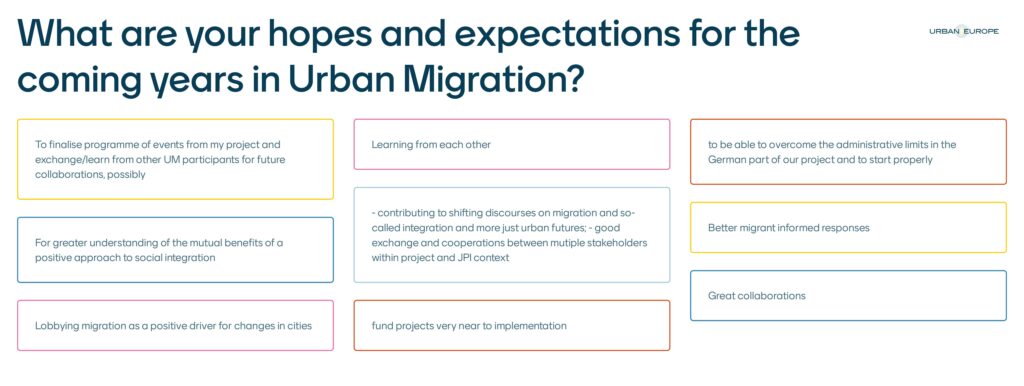
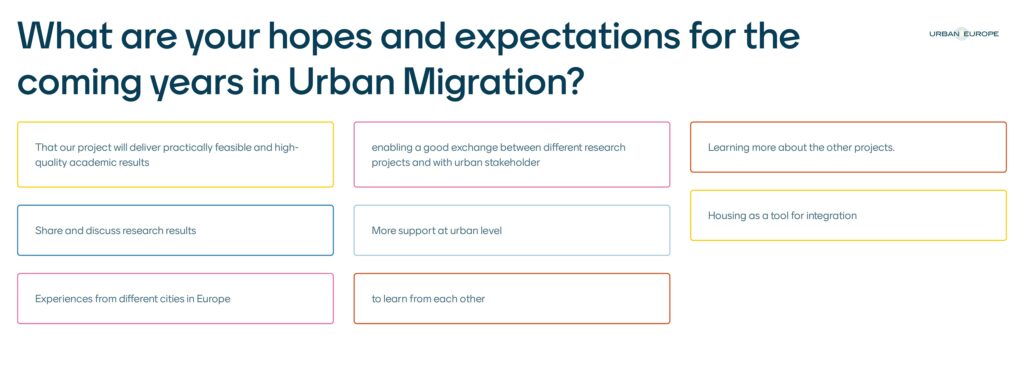
The projects were introduced into the JPI Urban Europe community by several representatives from JPI Urban Europe, introducing them to the Agora Dialogues, the upcoming “Driving Urban Transitions” parnership, the monitoring system, and the communication activities. The Urban Migration Projects Presentation made its debut.
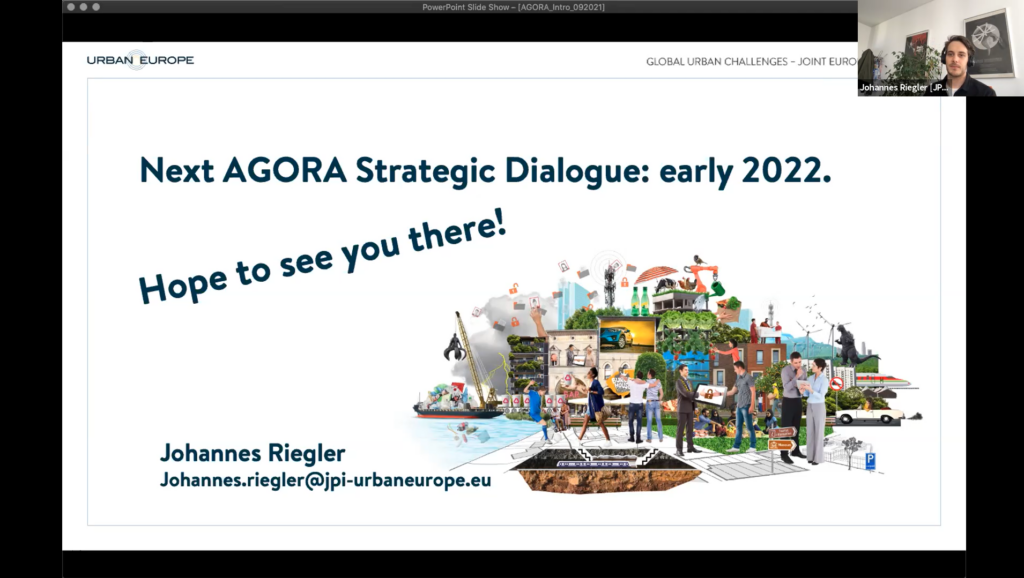
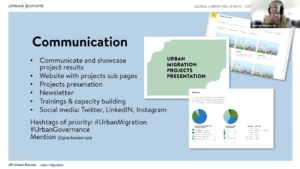
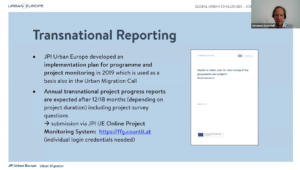

Introduction to JPI Urban Europe and to “Driving Urban Transitions”
Speed presentations by all projects
Communications, reporting and monitoring for Urban Migration projects
Welcome to JPI Urban Europe’s Stakeholder Involvement platform: The Agora
Urban Migration Projects Presentation